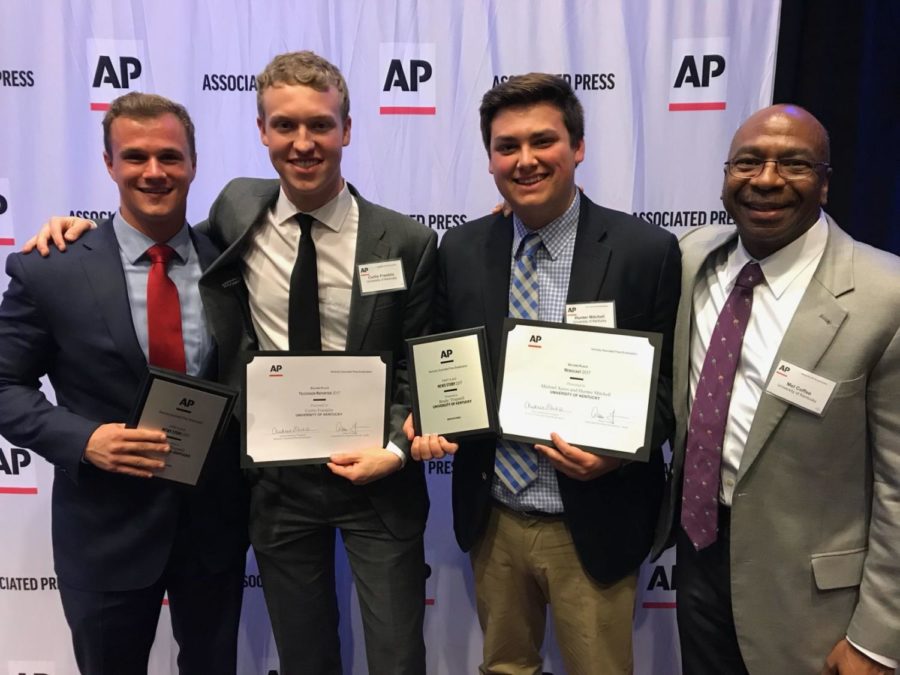UK student journalists win big at Kentucky AP Broadcast awards
Students Michael Ayers, Curtis Franklin and Hunter Mitchell celebrate their awards at the Kentucky Associated Press Broadcast Journalism Awards alongside professor Mel Coffee. Brady Trapnell, who is studying abroad in London, also placed. Photo provided by Michael Ayers.
April 17, 2018
A day before the whole journalism world looked to the Pulitzer Prize winners on Monday, a different group of journalists were celebrating their own victories.
UK student-journalists did well this past weekend at the Kentucky Associated Press Broadcast Journalism Awards.
Brady Trapnell, who is currently on an internship in London with CBS, received four awards. Trapnell received two second place awards for television stories, a first place award for best television news story and a first place award for a “March Madness Safety” radio story.
Curtis Franklin placed second for the best TV reporter and Michael Ayers and Hunter Mitchell both got kudos for their newscast, which also received a second place award.
Out of 625 entrants, UK students placed among the 40 who received awards, UK journalism associate professor Mel Coffee said.
“Everything you see in that newscast was done by students,” said Coffee, who only makes sure that the newscast is legal and not completely off course. “…And I think that’s what makes our newscast so neat, because they’re making their own graphics, they’re doing absolutely everything themselves.”
Coffee said that historically, UK students have done well at the AP awards.
Much of the students’ work has been broadcast through JOU 404’s newscast— a journalism class which broadcasts on Spectrum cable— while the radio stories have been on WRFL. Coffee said that news directors from all over the country are constantly asking about promising students.
“We run out of students to give them, because they’ve already gotten job placement before they graduate,” he said.
Coffee said that 404 students spend upwards of 17 hours a week on the course.
“They come in early and they stay late and they don’t complain about it,” he said. “And I think it’s just a testament to their desire to do whatever it is they want to do in journalism. You have to be passionate about it to put that kind of time in it. They’re not doing it for a grade, they don’t even ask about grades.”































































































































































